#Literary Documentary
Explore tagged Tumblr posts
Text
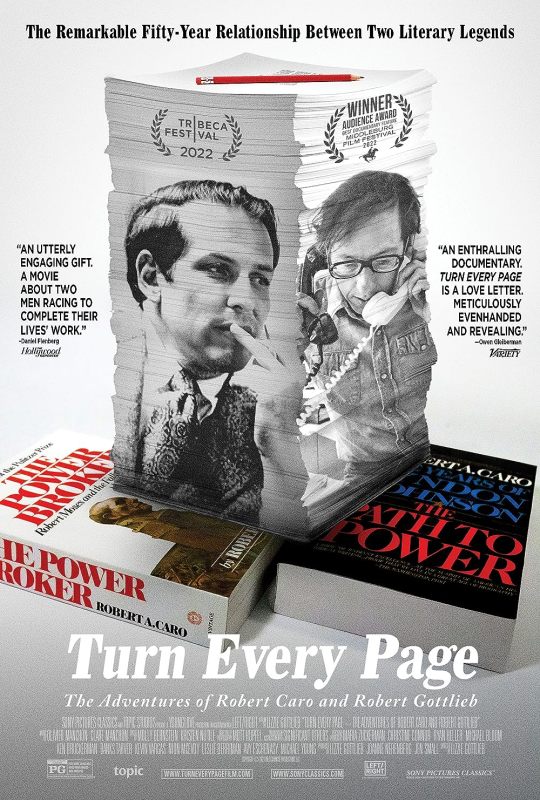
Lizzie Gottlieb's "Turn Every Page: The Adventures of Robert Caro and Robert Gottlieb" June 12, 2022.
#Lizzie Gottlieb#Turn Every Page: The Adventures of Robert Caro and Robert Gottlieb#Turn Every Page#2022#2020s#Documentary#Literary Documentary#Robert Caro#Robert Gottlieb#Biographical Documentary#Publishing#Literary#4/5
41 notes
·
View notes
Text
Friendly reminder that just because a popular queer ship didn't start making out on screen after a grand confession of romantic love doesn't mean you got queerbaited.
#looking for fun positive stuff to reblog about the wwdits finale and like#come on y'all#we've been over this before#queerbaiting is a deceptive marketing practice NOT the existence of queer subtext which doesn't get explicitly acted upon in canon#and before anyone comes @ me yeah i ship nandermo too#sure there wasn't any on-screen confession or consummation or whatever but like#i have the literary analysis skills necessary to recognize the implication of nandor inviting memo into his actual bed for the first time#ESPECIALLY considering it happens AFTER the documentary cameras and film crew have explicitly been removed from the room#that shit ain't queerbait
15 notes
·
View notes
Text
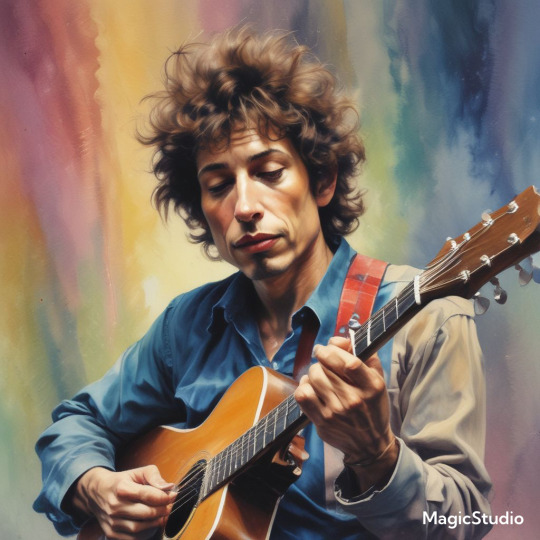
The Bard of Nonconformity: Bob Dylan’s Enduring Legacy
Bob Dylan’s enigmatic nature, profound lyrical depth, and genre-defying musicality have long fascinated audiences, offering a rich tapestry for exploration. His life, artistic evolution, and far-reaching influence on music, literature, and society are intricately woven, reflecting the complex interplay between personal heritage, environmental stimuli, and cultural impact.
Born Robert Zimmerman to Russian Jewish immigrants in Duluth, Minnesota, Dylan’s early life laid the groundwork for his empathetic connection with the underdog, a pervasive theme in his music. The strategic name change to Dylan, likely for a more marketable and less ethnically identifiable stage presence, highlights the challenges faced by Jewish artists in mid-20th century America, setting the stage for a career marked by reinvention. This duality of identity—between his roots and public persona—underscores the tensions between authenticity and the demands of a burgeoning career.
Immersed in the diverse musical landscape facilitated by powerful radio stations and the creative ferment of Greenwich Village’s Bohemian scene, Dylan’s unique sound began to take shape. His artistic trajectory, from initial homage to Woody Guthrie to the development of a distinctive style, demonstrates an unwavering dedication to his craft, prioritizing artistic expression over mainstream expectations. This nonconformist spirit, evident in his transition from folk to electric rock and subsequent explorations into country and western genres, not only pioneered musical shifts but also inspired a generation of artists.
Dylan’s influence extends far beyond the musical realm, with his work recognized for its literary merit, culminating in the 2016 Nobel Prize in Literature. By weaving references to literary figures into his songs, he has democratized access to these works, bridging the divide between music and literature. His addressing of social injustices, as seen in his advocacy for Rubin “Hurricane” Carter, solidifies his role as a voice for the marginalized and a champion of free speech, embodying the essence of America’s founding values of nonconformity and expression.
While the pressures of fame, particularly the loss of privacy in Woodstock, have led to periods of reclusiveness, this has paradoxically contributed to the mystique surrounding his figure, cementing his status as a cultural icon. His legacy, therefore, is not merely a body of work but a celebration of the human spirit in all its complexity and beauty, standing as a powerful reminder of the importance of artistic integrity, empathy, and visionary pursuit in an era often marked by division and conformity.
Bob Dylan: Busy Being Born (Piers Garland, 2020)
youtube
Monday, December 23, 2024
#music legacy#cultural impact#literary influence#artistic expression#nonconformity#social commentary#american icon#musical evolution#biographical analysis#documentary#ai assisted writing#machine art#Youtube
7 notes
·
View notes
Text

Seen in 2023:
Orlando, My Political Biography (Paul B. Preciado), 2023
#films#movies#stills#docs#documentary#Orlando My Political Biography#Paul B Preciado#French#2020s#literary#Virginia Woolf#seen in 2023
37 notes
·
View notes
Text
the boy in striped pajamas: my sentiments
rating: 9.8/10
warnings: spoilers ahead + emotional damage (be prepared)

this was in my bucket list for quite some time, and i’ve only gone around to watching it a few days ago. to be frank, i’m still recovering, and i’ll probably never truly recover from this drastically touching cinematic masterpiece.
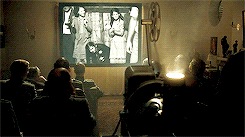
bruno was the son of an auschwitz’s commandant who moved his family to the countryside for work duties. in my eyes, bruno’s character was so beautifully human. unbothered by the atrocities currently happening, he remains curious and compassionate within his little bubble of innocence. he questions unashamedly, about the strange horrid smell coming from the “farm's” chimneys, (from the burning of jews), about the numbers on shmuel’s so-called pajamas (a jewish boy whom he had befriended).

unfortunately, purity never sustains in our blood-wrenched world. in the end, bruno’s death was a karmic result of the nazi regime, and his father’s ignorance and failure to protect him. it saddens me deeply knowing he died believing his father was a rightful man. he died thinking he’d find shmuel’s father in the concentration camps. he died so unknowingly. what breaks me the most, was he died gripping the hands of his beloved friend, shmuel, inside that gas chamber. i’m not lying when if i tell you i cried for three hours straight after this movie. it’s infuriating, knowing this wasn’t just made-up, stuff like this has happened, and honestly, they’re still happening! how could anyone let these children be stripped away of their humanity and futures like this? how does ethnic identity completely decide your social mobility? how is it justifiable in any way for genocide to even be worshipped?

therefore it’s such a provoking thought knowing if we could just entirely eradicate everything we’ve known about something and approach it through our intrinsic nature, perhaps we would've been so much more connected to our roots: to merge into a mere species, the human race. sometimes i wonder if current and past societies removed all the societal structures, the ingrained bigotries and biases within themselves, would racism and exclusion of marginalized groups ever exist in the first place? would i be able to kiss a person without the fear of being discriminated against? would the gender wars between man and woman become an incomprehensible notion? would we be able to finally collectively strive for the common greater good? would the generation of our offspring still have to worry about whether they’re going to be competent enough for the work market? so many questions and none can be answered. so many voices and none were heard. so many potentials, but none fulfilled.

overall, the film articulately depicts the true horrors of war and the tragic consequences it enforces. every scene was so raw, so full of emotions and authenticity. i would watch this again, probably just to feel something, even if i might be more emotionally damaged from being reminded of the devasting aftermath of bruno and shmuel’s forbidden comradeship.

#the boy in the striped pajamas#film review#love this movie#war crimes#auschwitz#gas chamber#jewish#writing#essay writing#essay#things to think about#literary analysis#sad movies#war movies#documentary#books#bookblr#writeblr#poets and writers#writerscommunity#creative writing#poetry#emotional#emotions#life#movies#movie review#moviegifs#cinema#cinematography
15 notes
·
View notes
Text
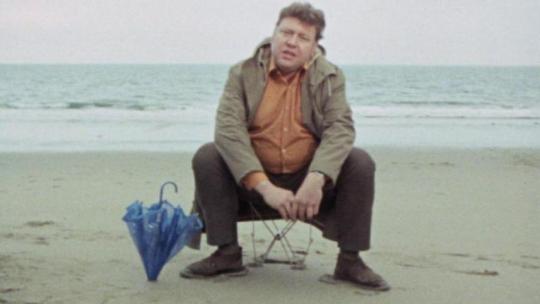
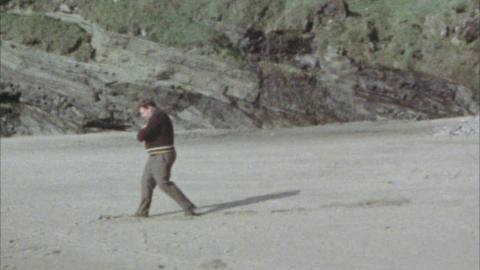
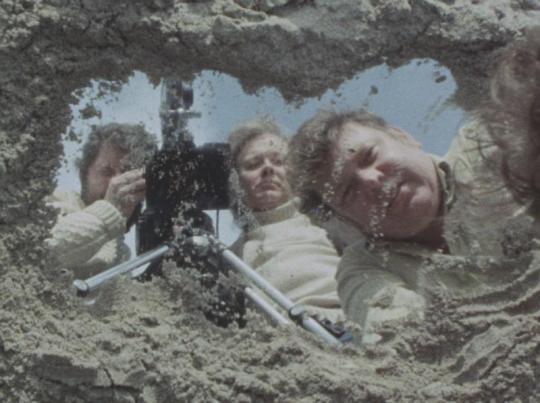
Fat Man on a Beach (HTV, 1974)
"I'm going to read some more poems now. Erm. It may be that if you want to go and have a cup of tea, this would be a good time. I know that's what you masses are like. The mention of poetry and off you go."
#fat man on a beach#b.s. johnson#classic tv#documentary#htv#michael bakewell#aled vaughan#a frankly incredible and truly unique piece of television. according to Johnson's biographer‚ the novelist Jonathan Coe‚ this film was#described in tv listings at the time as a documentary about Porth Ceiriad‚ a rather beautiful beach on the Llŷn Peninsula in North Wales#it.. is not that. i can only imagine the baffled reactions of an idle audience tuning into HTV in 1974. true‚ this is entirely filmed at#Porth Ceiriad‚ but any element of travelogue (or even really of documentary) is dispelled almost immediately: the first lines heard are#those of an unseen narrator who tells us we are about to watch a film about a fat man on a beach. 'Do you really want to watch that?' he#asks incredulously. it's a challenge‚ the first of several from Johnson‚ who spends the next 40 minutes variously pottering about the sands#mugging to the camera‚ reciting poetry (his own and others; literary and dirty) and baring his soul. I've never seen anything quite like it#I'm not sure that much has been made that is quite like it tbh. Johnson was a fiercely original‚ brilliant mind; he was a novelist#a poet‚ a critic and a filmmaker. he was also‚ when this first aired on uk tv‚ dead. a few weeks after completing filming on this‚ his#final work‚ he sadly took his own life. i mention it not as a grim factoid but because it is a vital contextualisation of this film; the#play has been described before (and play is not the right word) as a sort of loose form manifesto from Johnson‚ a laying out of his own#peculiar philosophies and interests in a disjointed manner‚ peppered with asides and distractions and filming mishaps (all kept in the#final product). for me‚ the feeling was inescapable that this was like viewing a suicide note. whether Johnson had already come to some#conclusion on that front or not‚ the fact is that his own obsession with morbidity‚ with the spectre of death and of decay (it runs right#through his work‚ particularly his work in film) transforms this into something almost confessional. there's a section of the film where#the author recalls witnessing the aftermath of a traffic accident‚ a motorcyclist thrown through wire fencing and sliced like cheese#the absurdity of the comparison is lingered on‚ Johnson almost stalls and appears to lose his train of thought (briefly discussing instead#the modern mass production of cheese) but he also seems clearly affected‚ delivering the tale in a halting‚ reverent tone#not that this is all darkness and gloom; it's just as often funny‚ or surreal (the film frequently cuts away to a bunch of bananas‚ only#later explained by one of Johnson's biographical recollections) and includes visual puns‚ bad jokes and a few moments of physical comedy#the writer doesn't seem distressed. rather‚ he seems... if not at peace‚ then as though he has come to terms. confident in his own beliefs#and ideals. but perhaps that's reaching too far‚ or reading in what the viewer wishes to read in. the sad fact is that Johnson took his own#life‚ but he left us with a body of work unlike almost anything else‚ and which is still being celebrated and analysed today. rip bsj
3 notes
·
View notes
Note
(I have no idea if this will make sense—sorry I’ve had some wine this evening and so I’m rambling)
I think this is a “popular” opinion but not widespread—people need to understand that there is so much nuance to reading. Obviously there’s the “you can like things I don’t like” and vice versa, but also in HOW people enjoy things. Like take Fourth Wing (I know I know), but while I also agree with a lot of the complaints, I still was just like “that was a fun time, I totally ignored all the sex scenes bc I hate how they were written, but I was vibing the whole time.” And I feel like some people would still respond to my opinion like “okay but it was so horrible how did you even enjoy it at all??? Lame”
Like okay Betty, I love high fantasy as much as you, but sometimes I want something that just fucks, okay?
(and not to say you aren’t allowed to not like things, but there seems to be a fine line between “hey! I didn’t like this but that’s okay” and “I hated this and I CANNOT comprehend why ANYONE could find even an inkling of fun from this + I’m going to subtly implicate that I think people who like this are stupid”) (obviously not for books that are objectively hurtful or offensive)
And of course you can go so many different ways than just that example, but it’s a mix of gate-keeping, prejudice, lack of empathy, and a bit of a superiority complex that makes it so hard for the reading community to really be united.

#you are SO right i’m glad you’re saying it#the superiority thing is so truly genuinely unbelievably exhausting but it’s how some people get through the day so idk idc#but yeah i’ve had irls scoff and laugh at my bookshelf and i’m like dude. i’m 24 years old ok like#i don’t need to play weird childish games about who’s better for reading what#i like it and it’s bad vs. it’s good and not for me vs. i don’t like it and i think it’s bad vs. it’s good and i love it? all valid!!#all real!!! and where a book falls on that axis will be different for every single person!!#i read a good amount of literary fiction and as an amateur writer i usually like it because it’s so fun to read invested writing like that#but ALSO! i usually have a lot more FUN reading a romance novel or a silly fantasy series#and i read primarily for entertainment and not for educational value. and that’s okay!#it’s so bizarre because you don’t see people scoffing when someone watches the walking dead instead of a documentary or like the letter M#but as soon as someone reads for entertainment above anything else it’s a waste of time and they’re stupid.#this feels entirely unrelated to your ask but i’ve wanted to talk about it for too long#and IVE HAD WINE TOO#i agree w you wholeheartedly though and i’m glad you sent this#anon#asked and answered#hot takes
3 notes
·
View notes
Text
Poems that escape me #4
The night sky seems to loom as its diurnal hours pass and marches her mindless babe of frore to smother the living fast
Above her brood’s tantrums her mum tears spill forth the mirth of every starlit eyes bane of yonder dying earth
Alluring, dancing patterns rime o’er the cusps of life eyes deluded by vibrant stars yet our mouths defy with strife
Vain yet able; mind of man protects the vessel in cloth we huddle near dying embers our fingers like droning moths
We thaw in tepid stories the smoke paints an endless tale the ”sane” recalls beneath the snow the hope of a springing vale
In every misty breath hangs a reverent pray’r
Gaze on the horizon the desolate dark skies one of us will live to see our cardinal sun, rise
#poems#my poems#i love humans like a nature documentary narrator#i dont live in snow if you couldnt tell#literary advice pls
0 notes
Text
If life is a performance, his was a masterpiece.
Mad About The Boy: The Noël Coward Story is a unique and inspirational look at the life of an era-defining talent.
Now showing!
#MadAboutTheBoy#NoelCoward#NoelCowardMovie#NoelCowardFilm#MadAboutTheBoyFilm#Documentary#QueerCinema#LGBTQIACinema#IndependentFilm#Biopic#Literary#Playwright#Theatre#RegentStreetCinema#London
0 notes
Photo

A sooty fish, an uneasy idyll, the Not So stories, yikes this was a real person, audiobook of Ever Rest coming v soon, new Not Quite Lost in progress, a little horse. All in my newsletter https://mailchi.mp/8778ead3f05a/yikes-this-was-a-real-person-an-uneasy-idyll-a-sooty-fish-a-little-horse
#literaryfiction#literary fiction#sound sculpture#moon and the sledgehammer#cult movie cult 1971 documentary sussex audiobooks
0 notes
Photo

Eva Vitija’s “Loving Highsmith” September 2, 2022.
#Eva Vitija#Loving Highsmith#2022#2020s#Documentary#Literary Documentary#Patricia Highsmith#🏳️🌈#Drama#Romance#Family Drama#Travel#Career#Gwendoline Christie#3/5
7 notes
·
View notes
Text
Becoming an Intelligent Woman
My Dears,
There is no greater goal than being a fine woman who is intelligent, kind, and elegant. As much as we all want to be described with these adjectives, it takes a great amount of discipline to get there. It is very doable only if you are ready to put in the work.
Here are steps you can add to your routine in the next 4 weeks that will make you 1% more intelligent than you were before. This is a process that should become a habit not a goal. It is long term, however, I want you to devote just 4 weeks into doing these steps first and recognize the changes that follow.
Watch documentaries: This is the easiest step, we all have access to Youtube. Youtube has a great number of content on art, history, technology, food, science etc that will increase your knowledge and pique your curiosity. I really did not know much about world history especially from the perspective of World war 1 & 2, the roaring 20s, Age of Enlightenment, Jazz era, monarchies etc but with several channels dedicated to breaking down history into easily digestible forms. I have in the last 4 weeks immersed myself into these documentaries. Here are a few I watched:
The fall of monarchies
The Entire History of United Kingdom
The Eight Ages of Greece
World War 1
World War 2
The Roaring '20s
The Cuisine of the Enlightenment
2. Read Classics: I recommend starting with short classics so that you do not get easily discouraged. Try to make reading easy and interesting especially if you struggle with finishing a book. Why classics? You see, if you never went to an exclusive private school in Europe or America with well crafted syllabus that emphasized philosophy, history, art, and literary classics, you might want to know what is felt like and for me this was a strong reason. Asides that, there is so much wisdom and knowledge available in these books. In these books, you gain insights to the authors mind, the historical context of the era, the ingenuity of the author, the hidden messages, and the cultural impact of these books. Most importantly, you develop your personal philosophy from the stories and lessons you have accumulated from the lives of the characters in the books you read. Here are classics to get you started:
Animal Farm by George Orwell
Pride and Prejudice by Jane Austen
Jane Eyre by Charlotte Brontë
The Great Gatsby by F Scott Fitzgerald
Candide by Voltaire
Paradise lost by John Milton
3. Study the lives of people who inspire you: I dedicate one month to each person that fascinates me. I read their biography (date of birth, background, death, influences, work, style, education, personal life) For this month, I decided to study Frank Lloyd Wright because I was fascinated by the Guggenheim Museum in New York. I began to read about his influence in American Architecture (Organic architecture, Prairie School, Usonian style), his tumultuous personal life, his difficult relationship with his mentor (Louis Sullivan), his most iconic works etc. By the end of the year I would have learned the ins and outs of people I am inspired by through books and documentaries. Here are other people I plan to learn more about:
Winston Churchill
Jacqueline Kennedy Onassis
Ada Lovelace
Benjamin Franklin
Helen Keller
John Nash
Isabella Stewart Gardner
Caroline Herrera
Ernest Hemingway
Catherine the Great
Ann Lowe
My dears, I hope you enjoyed this read. I cannot wait to write more on my journey to becoming a fine woman. I urge you to do this for four weeks and see what changes you notice. Make sure to write as well, it is important to document your progress.
Cheers to a very prosperous 2024!
#fine woman#growth#self love#self development#mindfulness#education#classy#beauty#self help#self care#interiors#self discipline#self worth#emotional intelligence#intellectual#intelligent#interesting#booklover#bookworm#booklr#educateyourself#get motivated#self improvement
2K notes
·
View notes
Text
pisses me off to no end when people on reddit or whatever complain that the show wouldve been better off without the tuunbaq.....did we watch the same show? the tuunbaq is everything, it held everything together. the tuunbaq is the main transformative element of the terror. the tuunbaq elevates the text beyond mere historical fact and lets it say something about the expedition's broader context of imperialism. it hunted the british men who were trampling on its home as a mere stopover, a side casualty, to finding the northwest passage (for, you know, "trade with china" after britain beat china into submission after the imperialist opium war). silna couldnt complete a proper ritual with it because of the british men - just as british colonizers have historically intruded and disrupted the practice of indigenous culture. and in the end the tuunbaq dies, after all the injuries it's taken from the british over the course of 10 episodes and finally chokes to death on the worst of them. because there's no escaping the reality of colonial history, and there is especially no fantastical escape for the colonizer. there's no proper way for us to move forward otherwise.
good historical fiction doesnt have to limit itself to accuracy - it needs empathy to draw out meanings in history using literary craft. thats what the tuunbaq means to me.... if you wanted a straight depiction of historical record, just go watch a documentary.. TUUNBAQ DENIERS DNI
#hell i would argue that historical inaccuracy is just as crucial to accuracy in historical fiction#if not even more so#for a different reason that you need an anchor to remind viewers that this is fiction#and should not be taken as substitute for historical record#though dont get me wrong i think historical fiction complements scholarly text too#because histfic gets to explore aspects of the same history in different ways you cant in academia - more emotional and the like#but its also a problem if histfic presents itself as accurate and ppl start looking at it as historical record itself#kind of like the crown (hate the crown)#so the question of 'how do we play with historical facts to reinforce the themes of the story' is crucial in histfic i think#the terror#the terror amc
963 notes
·
View notes
Text
at this point I've seen enough documentaries / academic articles / video essays / podcast episodes about the history of vampires that all make this mistake that I think I need a dedicated large red buzzer to push whenever I hear the claim "vampires got their start in english literature with john polidori's the vampyre, which began as an idea by lord byron at that famous ghost story contest on lake geneva in 1816." WRONG. incorrect. english language poems were vamping it up for years before then, including poems by byron. incorporate poetry into your conception of literary history or die trying.
166 notes
·
View notes
Text
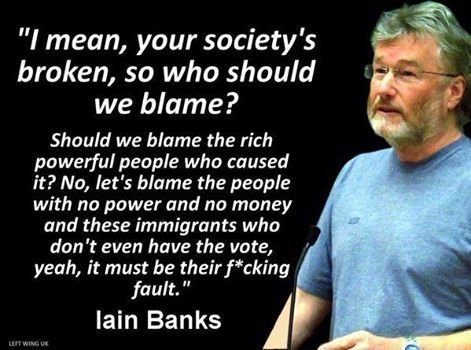
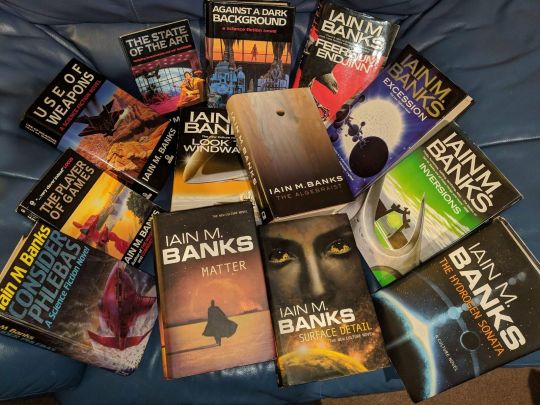
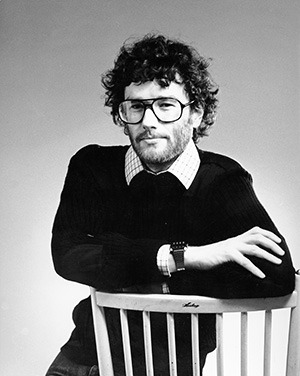
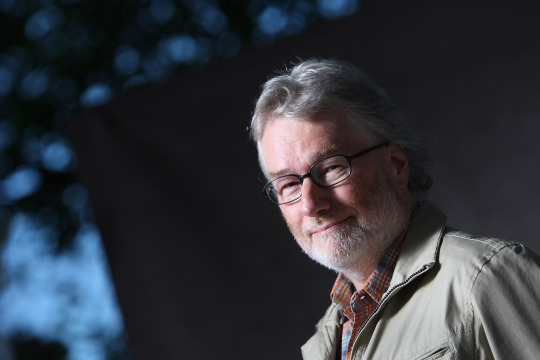
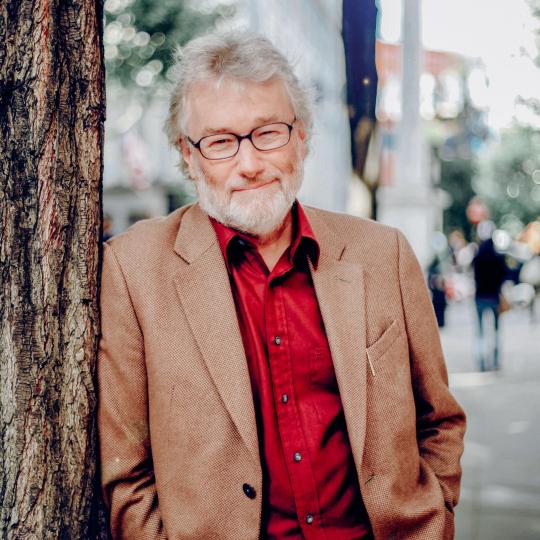
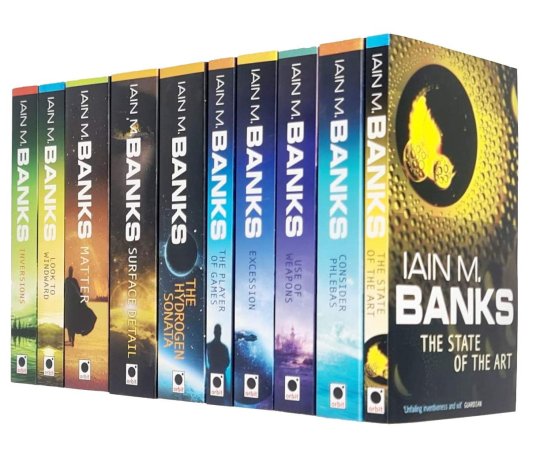
On February 16th 1954 the writer Iain Banks was born in Dunfermline, Fife
Banks was a son of a professional ice skater and an Admiralty officer. He spent his early years in North Queensferry and later moved to Gourock because of his father’s work requirement. He received his early education from Gourock and Greenock High Schools and at the young age of eleven, he decided to pursue a career in writing. He penned his first novel, titled The Hungarian Lift-Jet, in his adolescence. He was then enrolled at the University of Stirling where he studied English, philosophy and psychology. During his freshman year, he wrote his second novel, TTR.
Subsequent to attaining his bachelor degree, Banks worked a succession of jobs that allowed him some free time to write. The assortment of employments supported him financially throughout his twenties. He even managed to travel through Europe, North America and Scandinavia during which he was employed as an analyzer for IBM, a technician and a costing clerk in a London law firm. At the age of thirty he finally had his big break as he published his debut novel, The Wasp Factory, in 1984, henceforth he embraced full-time writing. It is considered to be one of the most inspiring teenage novels. The instant success of the book restored his confidence as a writer and that’s when he took up science fiction writing.
In 1987, he published his first sci-fi novel, Consider Phlebas which is a space opera. The title is inspired by one of the lines in T.S Eliot’s classic poem, The Waste Land. The novel is set in a fictional interstellar anarchist-socialist utopian society, named the Culture. The focus of the book is the ongoing war between Culture and Idiran Empire which the author manifests through the microcosm conflicts. The protagonist, Bora Horza Gobuchul, unlike other stereotypical heroes is portrayed as a morally ambiguous individual, who appeals to the readers. Additionally, the grand scenery and use of variety of literary devices add up to the extremely well reception of the book. Its sequel, The Player of Games, came out the very next year which paved way for other seven volumes in The Culture series.
Besides the Culture series, Banks wrote several stand-alone novels. Some of them were adapted for television, radio and theatre. BBC television adapted his novel, The Crow Road (1992), and BBC Radio 4 broadcasted Espedair Street. The literary influences on his works include Isaac Asimov, Dan Simmons, Arthur C. Clarke, and M. John Harrison. He was featured in a television documentary, The Strange Worlds of Iain Banks South Bank Show, which discussed his literary writings. In 2003, he published a non-fiction book, Raw Spirit, which is a travelogue of Scotland. Banks last novel, titled The Quarry, appeared posthumously. He also penned a collection of poetry but could not publish it in his lifetime. It is expected to be released in 2015. He was awarded multitude of titles and accolades in honour of his contribution to literature. Some of these accolades include British Science Fiction Association Award, Arthur C. Clarke Award, Locus Poll Award, Prometheus Award and Hugo Award.
Iain Banks was diagnosed with terminal cancer of the gallbladder and died at the age of 59 in the summer of 2013.
322 notes
·
View notes
Text
The missing Arthurian knight - rediscovered in 2019
Well the title is a slight lie - the missing knight wasn't rediscovered in 2019, it was earlier than that, but he didn't became public until 2019.
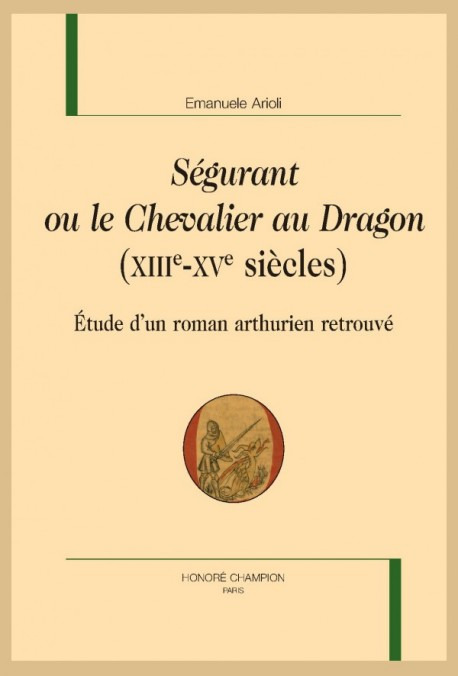
So what's this "missing knight" about? Well as the title says. There was a knight part of the Arthurian myth, and he had been missing ever since the Middle-Ages, and he was only recently rediscovered.
Or rather, to be exact - there was an Arthurian novel centered around a knight that existed and was a famous and well-known part of the Arthurian literature in the Middle-Ages, but that completely disappeared, and was forgotten by culture (as much popular culture as the scholarly one). Until very recently.
This rediscovered novel has been a hot topic of all Arthuriana fans in Europe for a few years now - and yet I do not see much talk about this onto this website, despite Tumblr being a big place for Arthurian fans?
So I will correct this by doing a series of posts about the subject. And this post will be the first one, the introduction post presenting to you "Ségurant, le chevalier au dragon" ; "Segurant, the knight of the dragon". A French medieval novel part of the Arthurian literature (hence the "chevalier au X" title structure - like Lancelot, the knight of the cart or Yvain the knight of the lion from Chrétien de Troyes), the reason this story was forgotten by all medievalist and literary scholars is - long story short - because it never existed in any full manuscript (at least none that survived to this day). It was a complete story yes, with even variations apparently, but that was cut into pieces and fragments inserted into various other manuscripts and texts (most notably various "Merlin's Prophecies").
The novel and the Knight of the Dragon were rediscovered through the work of Emanuele Arioli, who rediscovered a fragment of the story while looking at an old manuscript of a Merlin Prophecies, and then went on the hunt for the other fragments and pieces scattered around Europe, until he finally could compile the full story, that he then published in 2019, at the Belles Lettres publishing house, in 2019.
Arioli reconstructed the text, and translated it in both modern French and Italian for scholarly and professional editions (aka Honoré Champion in France, a reference for universities)...
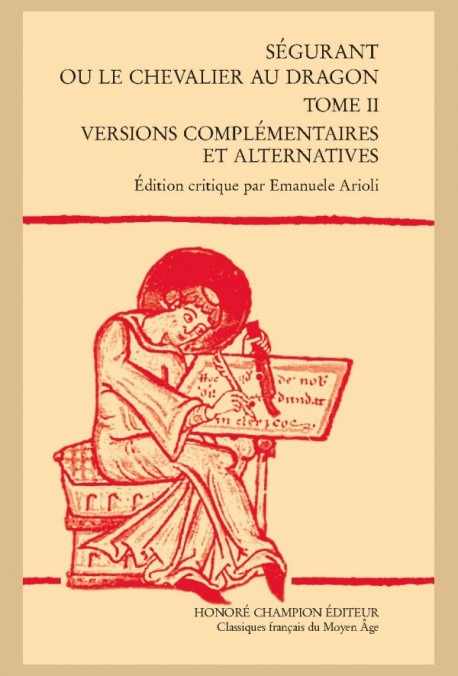
... But also for a more "all public, found in all libraries" edition - the famous 2019 edition at Les Belles Lettres.
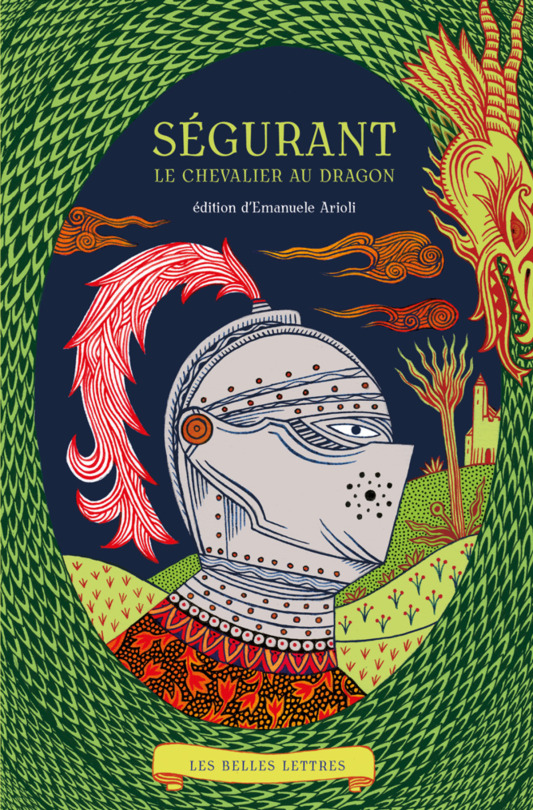
And not only that, but he also participated to both a comic book adaptation with Emiliano Tanzillo...
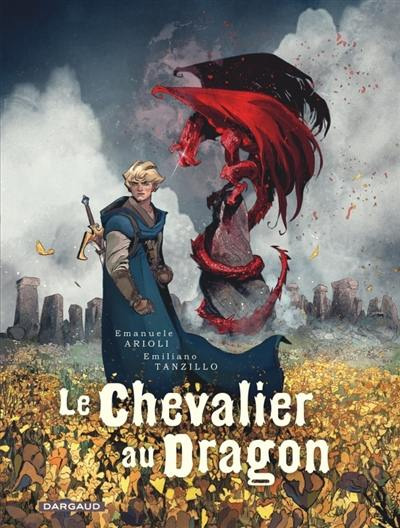
... and an adaptation as an illustrated children novel!

Finally, just a few weeks, the Franco-German channel Arte released a documentary about the reconstitution and content of this missing novel called "Le Chevalier au dragon: Le roman disparu de la Table Ronde". (The Knight of the Dragon - The missing novel of the Round Table). The full documentary is on Youtube in French for those that speak the language, here. And in German here for those who speak German.
Unfortunately there is no English version of the documentary that I know of, nor any English publications of the actual text - just French and Italian. But hey, I'll try to palliate to that by doing some English-speaking posts about this whole business!
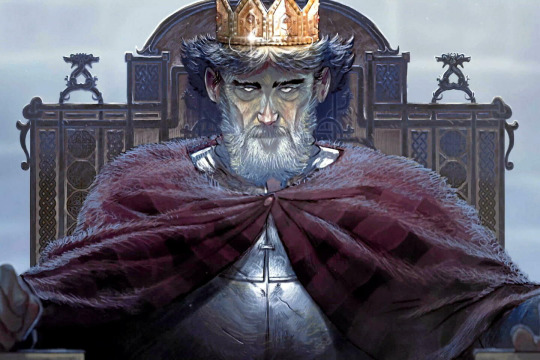
#ségurant#segurant#the knight of the dragon#le chevalier au dragon#arthuriana#arthurian myth#arthurian literature#arthurian novel#discoveries#medieval literature#arthurian legend#arthurian knights#found media#lost media#that people didn't even know was lost
337 notes
·
View notes